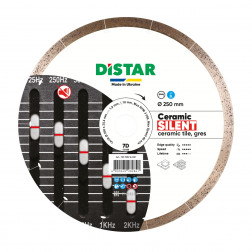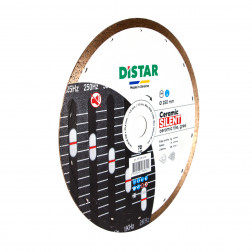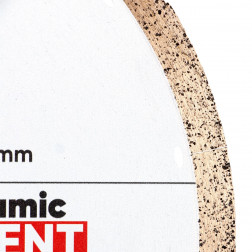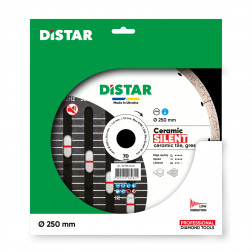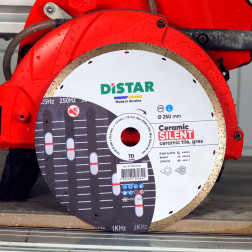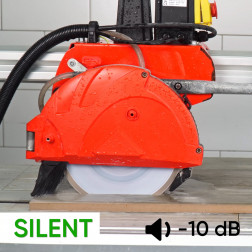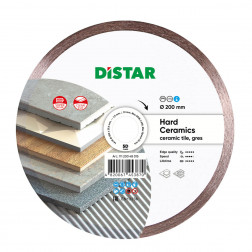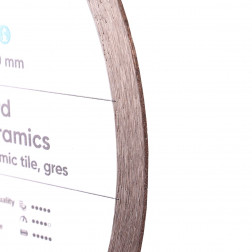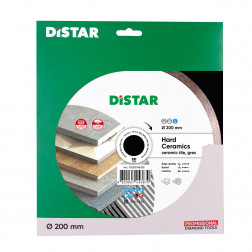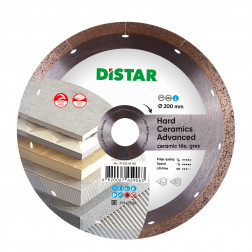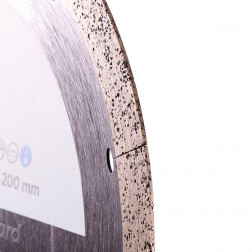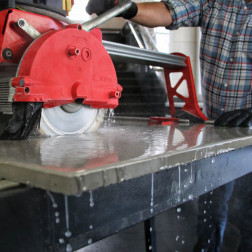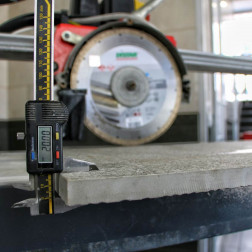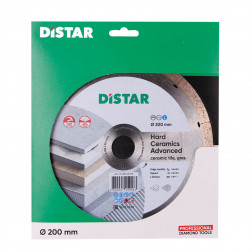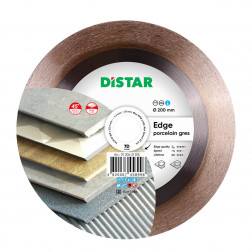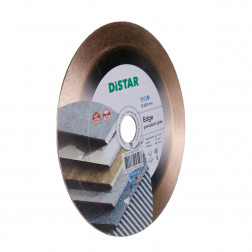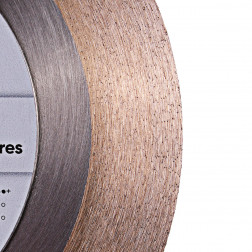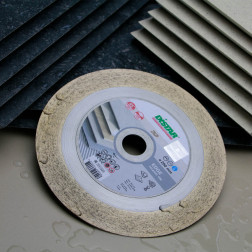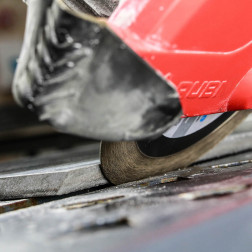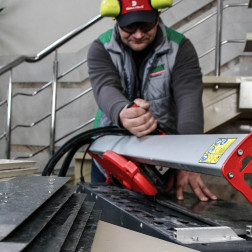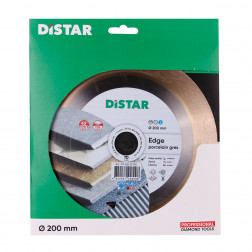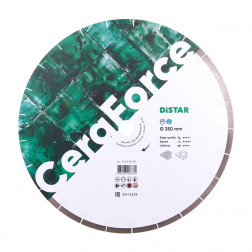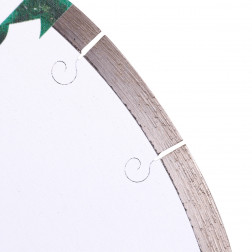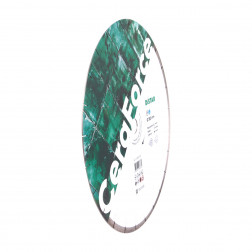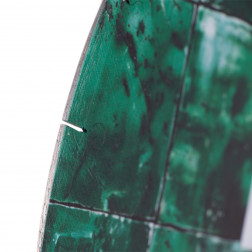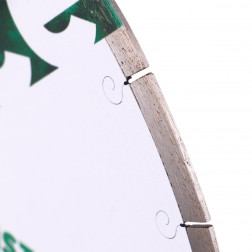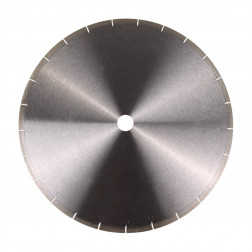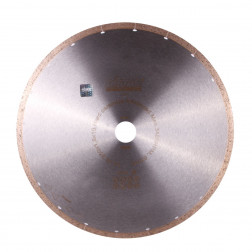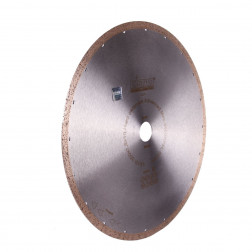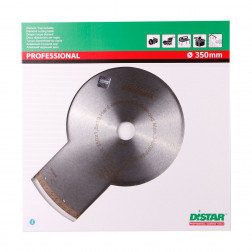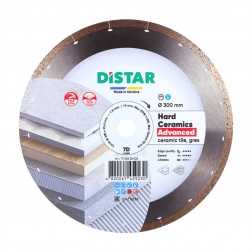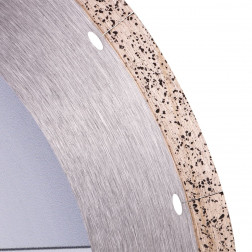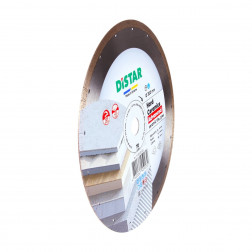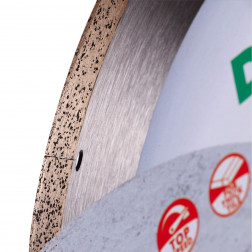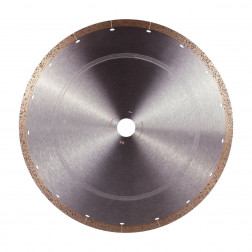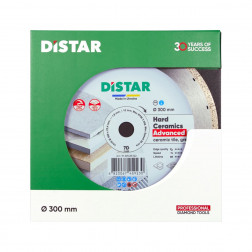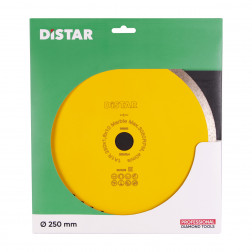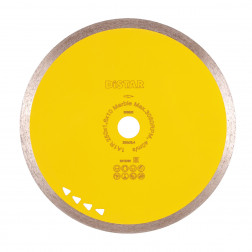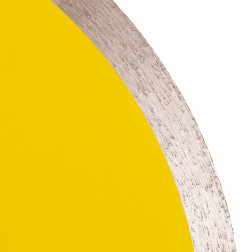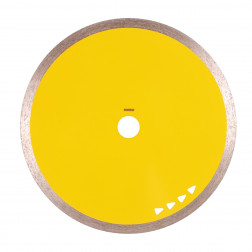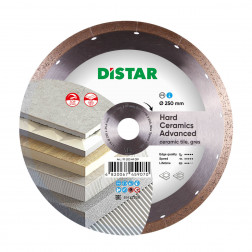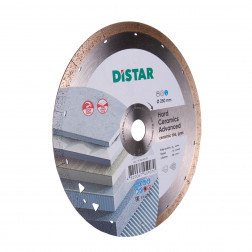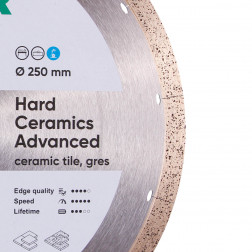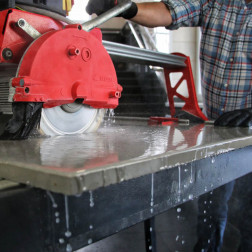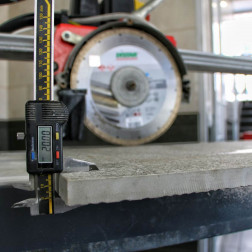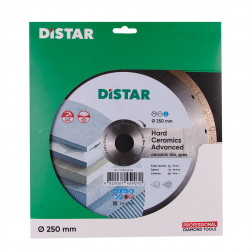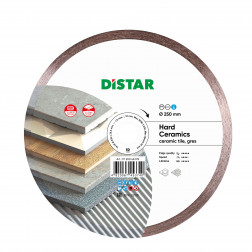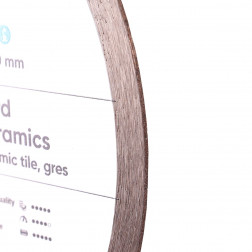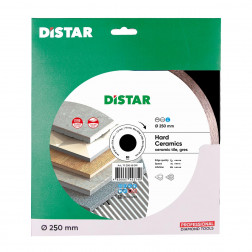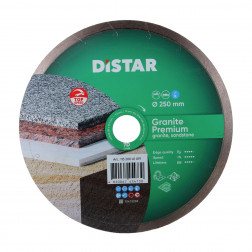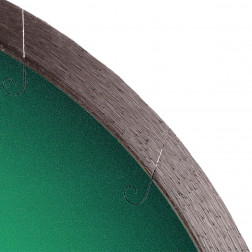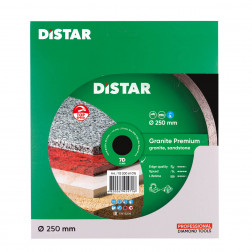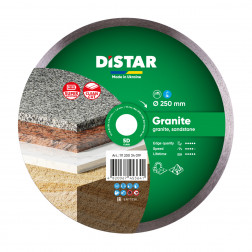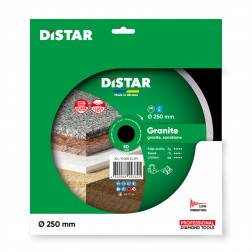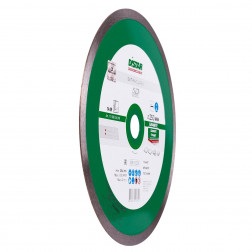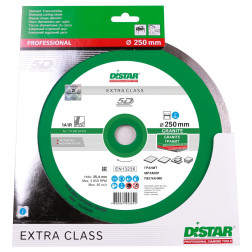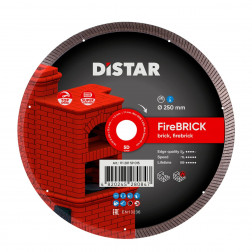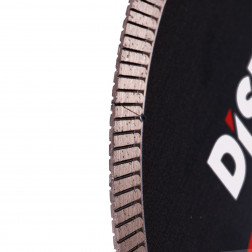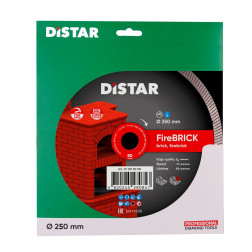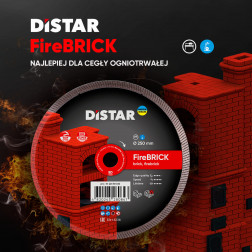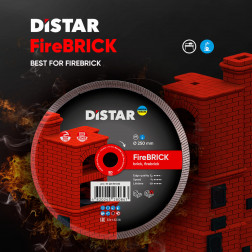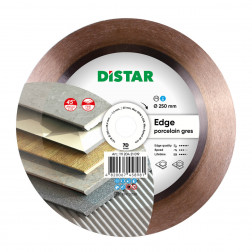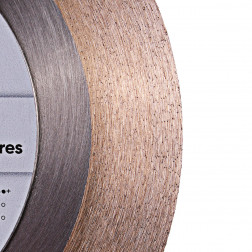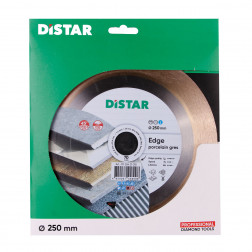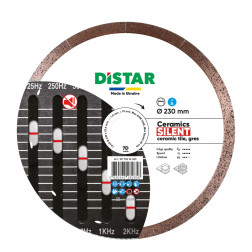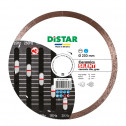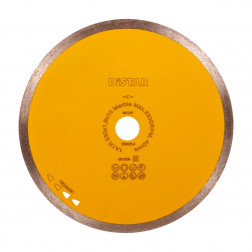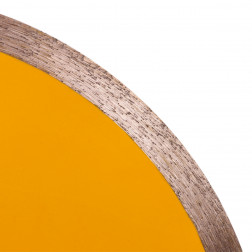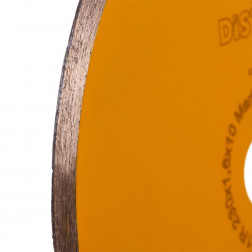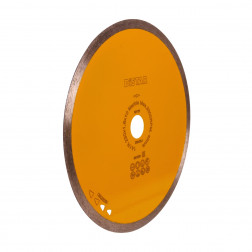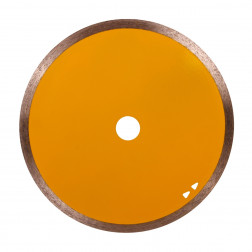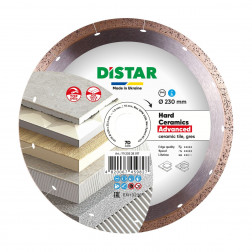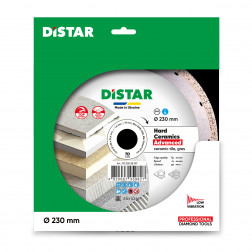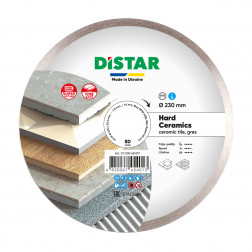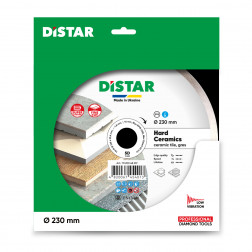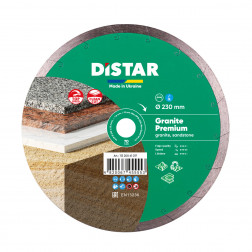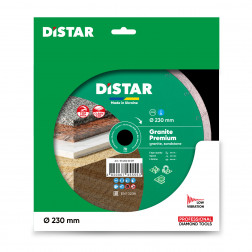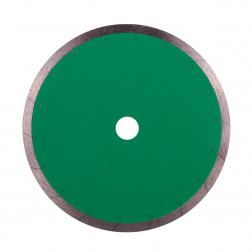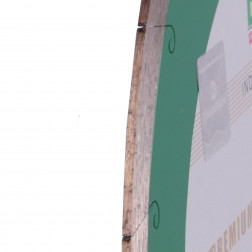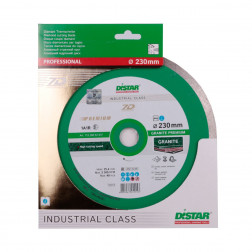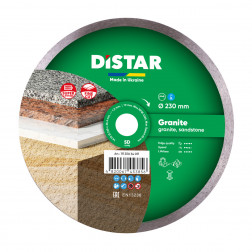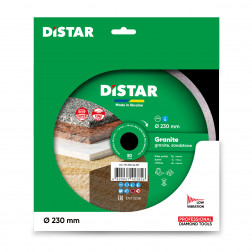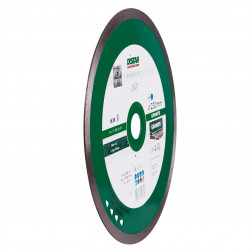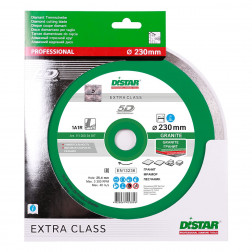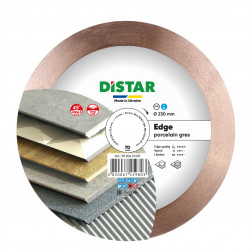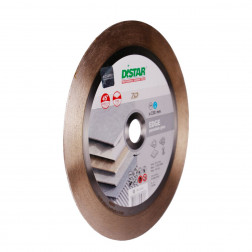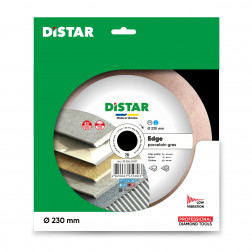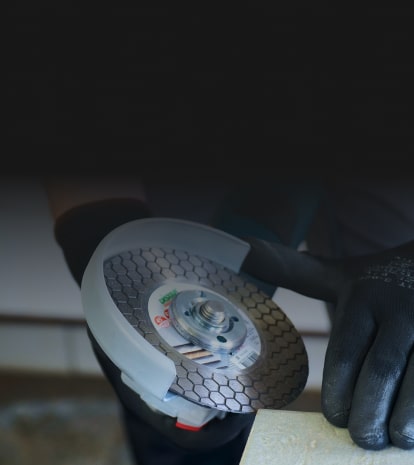Diamond blades for Table saw 25.4
58 modelsNowadays, ceramic tiles are an integral part of absolutely any modern design.
For cutting tiles an angle grinder can be used or a stationary electric tile cutter. The main advantages of the last one are straight cut and minimal chipping of tile. It is especially important if corners, moldings or baseboards are not used as decorative details, which could hide the flaws of the cutting. When laying tiles, it is the clean cut without chips that makes the table saw practically indispensable. A special diamond blade for a tile cutter is used as a consumable for such equipment.
The most common electric tile cutters, according to the size of the mounting blade, are divided into 200 and 250 mm in diameter, but there are already many models for 115-125 mm blades on the market. They allow processing of several types of materials, the main ones among them are ceramics, porcelain gres, granite and marble. The correctness of the selection of a diamond blade depends on the goals and objectives when processing the material.
Cutting ceramic tiles, as the most common material, can be divided into three operations performed:
Rough cutting. It is used for additional operations. As a rule, the edge of the material after rough cutting is closed with decorative interior details.
Finishing cutting. If decorative details are not used in the interior, or the trimming gets into places that cannot be closed later, we need a diamond blade, that laves minimal chips on the edge.
Cutting at 45 degrees (the "miter cut"). This type of cutting can be performed on almost any tile cutter, and it is used in the case of facing various niches, ventilation ducts or columns. The miter cut is radically different from cutting at right angles, so the blade must provide a clean cut and have a margin of strength, since when performing such an operation, the load on the metal body increases significantly.
When selecting a diamond blade for a tile cutter, it is necessary to consider the properties (hardness) and dimensions (primarily thickness) of the material being processed, as well as the type of coating.
There are such types of facing materials:
Ceramic tiles. The thickness can vary from 5 mm up to 11 mm. This is the easiest material to process, and it can be cut with almost any blade. At the same time, it is needed to pay attention to chipping.
Porcelain gres for the floor. It is often made with a thickness of 8-14 mm, but it can also be a little thinner. Even though it is considered a floor covering, it is frequently used for wall cladding, as it has dimensions much larger than ceramic tiles, and, consequently, its installation is faster. It is much harder in processing than ceramic tiles, therefore, the requirements for the cutting capacity of the blade are much higher.
Frost-resistant porcelain gres. Used for exteriors. Their thickness can reach 25 mm. Due to their structure and considerable thickness, they are processed more difficult than ordinary porcelain gres.
Granite, marble. They can be used both in exteriors and interiors. The most widespread have a thickness of 20-30 mm. These are fairly hard materials that require appropriate blades.
In addition to analyzing the material and performing operations, it is necessary to calculate the amount of work. The resource (durability) of a diamond blade is a very important factor. This parameter will significantly reduce the cost of cutting a linear meter of material. And, even if the price of such a blade is higher than the less resourcing one, in the end, the financial costs will be saved.
Another essential point is the size of the processed material. Ceramic tiles and porcelain gres, which are cutting on tile cutters, can reach a length of 1200 mm. Such long cuts significantly load the body of the diamond blade, therefore, to perform them a diamond blade with a good margin of strength is needed.
On the Distar company's website, you can buy a necessary blade and also get an advice on its applicability in the processing of various materials, as well as get information about the lifetime of certain blades. And a wide range of diamond blades will allow you to perform any work as cheaply and efficiently as possible.
